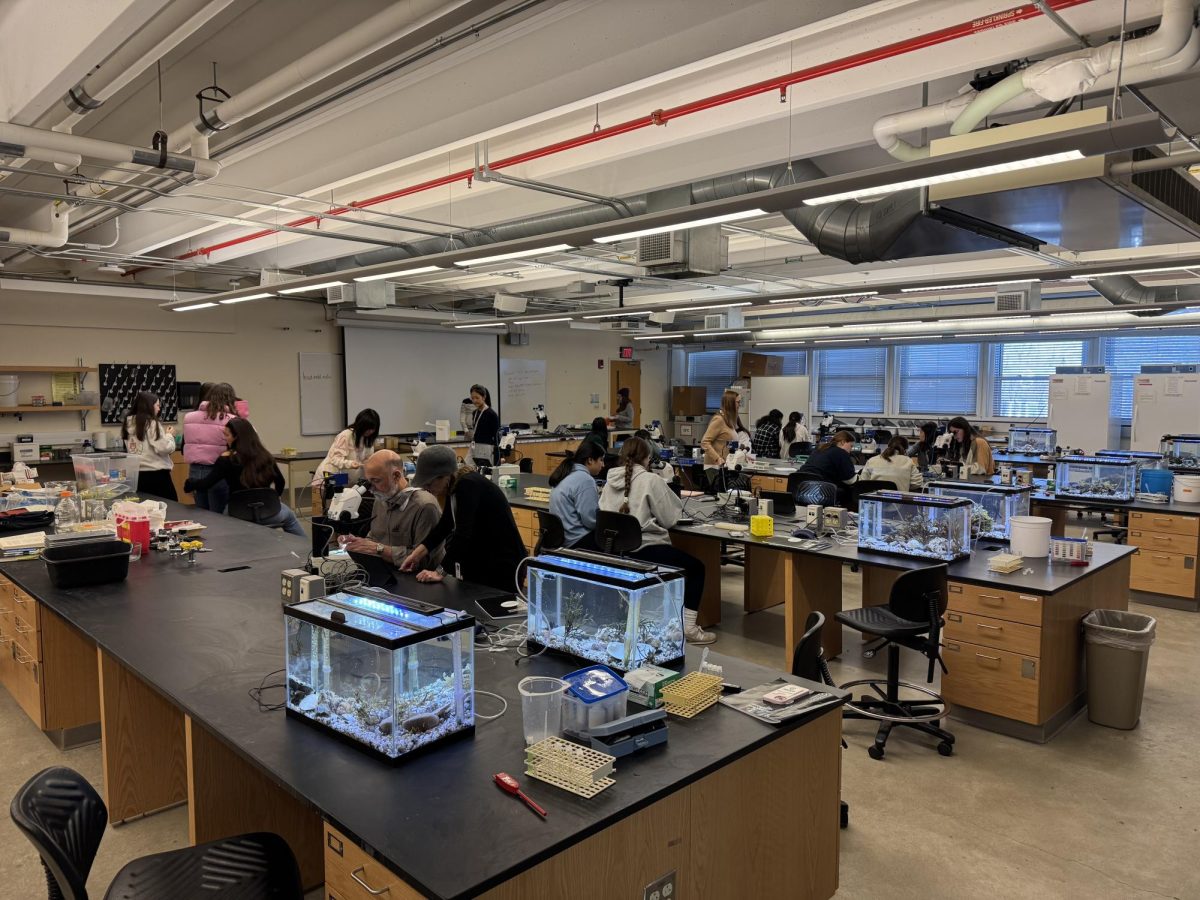The Fourcast examines a new university trend of holding standardized test scores optional in the admissions process.
In the college application process, there are many dates that hang over the heads of high school students: deadlines for essays, scholarships and early decisions that could affect the rest of their lives are everywhere in senior year.
Some deadlines, however, start even earlier than that. Whether a student takes the SAT or the ACT, those begin junior year. These standardized tests are supposed to determine a student’s future success in college.
Select colleges, however, aren’t on board with that idea anymore.
According to FairTest.org, there are over 800 four-year colleges and universities that are now test-optional. Director of College Counseling Carol Wasden has helped students apply to these schools.
“Test-optional can be a lot of different things…For example, NYU has a ‘Cafeteria Plan,’” Wasden said. “[Students] might choose not to send their SAT, but they’re going to send a combination of AP scores and subject test scores.”
One such student is senior Caroline Bhupathi. Bhupathi applied to three test-optional schools: Bowdoin College, Wake Forest University and Wesleyan University.
Bhupathi initially heard about the concept of a test-optional application from Bowdoin, and after combing through a list of schools, settled on a few that were perfect fits for her as a student.
“I first read about [Bowdoin’s] position and what they were saying seemed to resonate with me as a student,” Bhupathi said. “It made me feel like a person rather than just a number.”
Apart from appreciating these colleges’ more holistic view of her application, Bhupathi also saw a definite change in stress between her application process and those of friends applying solely to schools that required tests; even applications for the schools she applied to that do require tests (Rhodes College, University of Texas at Austin and Vassar College) held more stress for her than her test-optional applications.
“There wasn’t just this number that was telling me if I’d get in or not,” Bhupathi said. “Also, if I didn’t do tests I’d be able to do other activities, like community service, that actually mean something.”
These changes reflect a cultural shift away from standardized testing. During the Bush administration, the No Child Left Behind Act reformed education in a way that instilled more frequent standardized testing to have quantifiable benchmarks of students’ education.
While No Child Left Behind did initially have success, it quickly garnered criticism from both parties for “teaching to the test,” meaning that students memorize information for a test without really retaining the content.
U.S. Government teacher Dr. Elizabeth Bennett has another complaint about teaching to the test.
“Your curriculum is always dictated by what’s going to be on the test at the end…[Teachers] need to make sure students do the best they can on that test,” Bennett said. “It’s interesting to me that colleges are now saying that they don’t think that’s as important as people once did.”
Wasden agrees.
“Colleges have done all kinds of studies looking at this student and this test score: how did this student ultimately perform? Was that predictive?” Wasden said. “Folks who’ve given up standardized testing feel like they’ve had data that says it’s not predictive.”
Bennett has seen that question of whether or not a test taken in high school can actually prove one’s potential for success on a national and state government level. “[There has been] a lot of conversation and debate about the validity of standardized testing and what it actually demonstrates,” she said.
Of course, it isn’t just a teaching philosophy that drives schools to remove a mandatory test submission from their application: it’s a business decision, as well.
“If testing is a barrier to entry, [colleges] feel like they can perhaps increase their applicant pool by removing a barrier to entry,” Wasden said. “If you take that away, there are some students who think that it becomes more accessible.”
Many students who take standardized testing see it as a barrier to their futures, and teachers see this as a hindrance to their students’ success.
“I think it’s been one of the things that’s created so much stress for teenagers, especially teenagers that are headed to college and are high achievers anyway,” Bennett said. “[This is] how people look at now: if you don’t do well, doors are going to be closed for you.”
By opening up their applications to those who choose not to submit standardized testing scores, universities are reopening those doors.
“If you feel like you have a better chance of getting into a school without test scores, I would say do it,” Bhupathi said. “It’s less stressful, and it’s just nicer.”
Wasden also has advice for students who are considering applying to test-optional schools.
“You can look at some really phenomenal schools, and they will evaluate you on the work you’ve done in the classroom; they’ll really focus on your proven ability to succeed,” she said. “You just don’t have to have that pressure of a silly timed test.”









